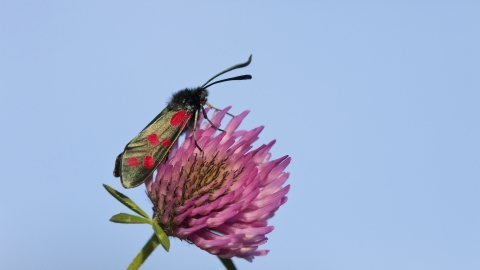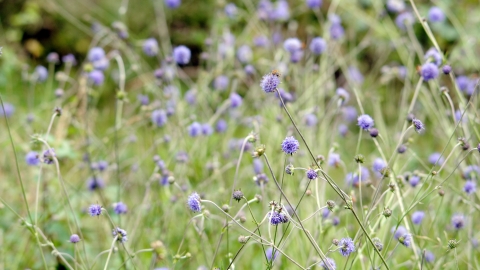
Six spot burnet moths thrive on the clover that grows in species-rich grassland. Image by Guy Edwardes/2020VISION

Amy Lewis
Freemans Pasture
Location
Know before you go
Dogs
When to visit
Opening times
Restricted, except for the annual open day in June.Best time to visit
Spring to SummerAbout the reserve
You would never guess this hidden beauty spot was just yards from the West Coast mainline and less than a mile from the M6. Small but perfectly formed, Freeman’s Pasture is a shining example of just how rich even the smallest nature reserves can be.
Nestled in the valley of the Clancutt Brook, the Pasture is one of the very few species-rich grasslands remaining in Lancashire, Greater Manchester and North Merseyside.
More than 120 species of plants bob in the breeze, with many characteristic of very old grassland. Devil’s-bit scabious and Dyer’s greenweed are among the stunning kaleidoscope of pinks,purples and yellows. The unusual adder’s-tongue fern hides away at ground level. Sensitive to intensive grazing and the overuse of fertilisers, these plants are testament to how life can thrive when modern pressures are lifted.
Freeman’s Pasture is, undoubtedly, at its best on sunny summer days. The field comes alive with butterflies and moths; species like five-spot burnet, six-spot burnet and chimney-sweeper hopping from flower to flower on busy foraging trips.
